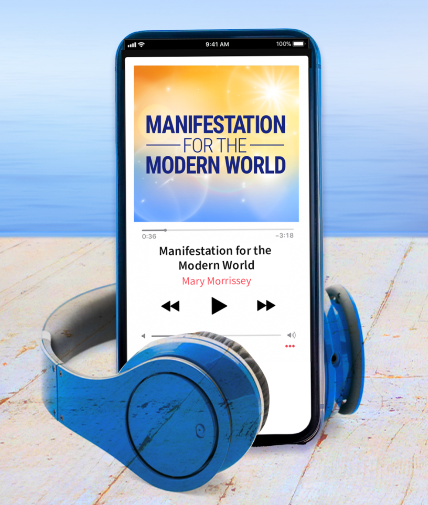Learn To Calm Anxiety With Mindfulness-Based Stress Reduction
Like Many Paradigm-Shifting Ideas, MINDFULNESS Begins With An Amazingly Simple Seed.
As Jon Kabat-Zinn describes it, mindfulness means:
Paying attention in a particular way—on purpose, in the present moment, and non-judgmentally.
When you first hear that definition, it almost seems too easy.
Yet from this seed, we’ve seen the growth of mindfulness as the most revolutionary development in meditation in the Western world.
More and more, we’re seeing mindfulness gaining acceptance as a proven tool in health care, psychology, personal well-being and a foundation for spiritual practice.
Of all the meditation practices to appear in the previous decades, why is mindfulness having such a huge impact?
One of the most important reasons is that there has been more scientific research on mindfulness than any other form of meditation – and an overwhelming body of evidence confirms the power of this practice to change our lives.
One of the most important reasons is that there has been more scientific research on mindfulness than any other form of meditation – and an overwhelming body of evidence confirms the power of this practice to change our lives.
A critical factor in the mainstream acceptance of mindfulness has been the work of the Center for Mindfulness in Medicine, Health Care, and Society at the University of Massachusetts Medical School. Founded in 1979 by Dr. Jon Kabat-Zinn, the Center’s Stress Reduction Clinic is the origin of the most rigorously tested form of meditation: a purely secular approach called Mindfulness-Based Stress Reduction
 Explore Mindfulness Based Stress Reduction with Florence Meleo-Meyer and Dr. Saki Santorelli
Explore Mindfulness Based Stress Reduction with Florence Meleo-Meyer and Dr. Saki Santorelli
The MBSR Online Course is presented by two expert teachers from the Center for Mindfulness: Dr. Saki Santorelli and senior instructor Florence Meleo-Meyer. The course allows you to experience the proven eight-week curriculum for learning to use your innate resources and abilities to respond more effectively to stress, pain, and illness.
Mindfulness is more than a treatment for health issues. What we find especially encouraging about the spread of mindfulness is that more and more people are discovering how this practice opens the door for a richer, more rewarding experience of life.
Mindfulness is a way of learning to relate directly to whatever is happening in your life that starts with paying attention in the present moment in an open, non-judgmental way.
As more than 20,000 people who have taken the MBSR training program have learned, using mindfulness techniques gives you effective new tools for handling emotional stress, chronic pain, and health conditions – as well as elevating your overall capacity for resilience, balance, and awareness.
Some of the clinically proven benefits of MBSR include:
- Stress reduction—at work or at home, especially for anxiety over health issues, aging, and uncertainty about the future
- Managing symptoms and reducing suffering from medical conditions such as chronic pain, high blood pressure, heart disease, persistent headaches, and more
- Enhancing our ability to overcome psychological distress such as panic attacks, depression, fatigue, and insomnia
- Support for any preventive care, exercise, diet, and wellness plan
The fruits of mindfulness practice extend far beyond what can be tested in a clinic or hospital. By intentionally orienting our lives towards the present moment, we often experience a greater delight in what the world is offering us right now instead of deferring our happiness for some time in the future. We become more attentive to our relationships, our day-to-day decisions, and the many ways we are supported and embraced by life.
If you’re thinking of beginning your own adventure in mindfulness, then there’s no better time to begin. Click here to get started now.
Meet Your Hosts
 Florence Meleo-Meyer, MS, MA, is a senior MBSR teacher and a former member of the executive leadership team for the Center for Mindfulness in Medicine, Health Care, and Society at the University of Massachusetts Medical School.
Florence Meleo-Meyer, MS, MA, is a senior MBSR teacher and a former member of the executive leadership team for the Center for Mindfulness in Medicine, Health Care, and Society at the University of Massachusetts Medical School.
She wrote, coordinated, and is featured on the video program Living Awake: Mindfulness Practices for Young Adults.
Florence serves as a Global Ambassador to the Global Mindfulness Collaborative, a network of MBSR teacher training institutes, world wide. She works to develop and promote the access and potential for Mindfulness-Based Stress Reduction (MBSR) and mindfulness-based programs (MBPs) to foster public health and well-being globally. Florence trains MBSR teachers at all levels of development as well as training MBSR teacher trainers. With equal focus on the refinement of teaching skills, attitudes and knowledge, she develops cultivation of the deepest understanding of MBSR as a path of love, healing and transformation. She is a leading contributor to the development of the MBSR curriculum, teacher training programs, materials and best practices for teacher training in the growing field of MBSR and MBPs.
 Saki F. Santorelli, EdD, MA, is the former director of the Stress Reduction Clinic and executive director of the Center for Mindfulness in Medicine, Health Care, and Society at the University of Massachusetts Medical School. He is the author of Heal Thy Self: Lessons on Mindfulness in Medicine.
Saki F. Santorelli, EdD, MA, is the former director of the Stress Reduction Clinic and executive director of the Center for Mindfulness in Medicine, Health Care, and Society at the University of Massachusetts Medical School. He is the author of Heal Thy Self: Lessons on Mindfulness in Medicine.
He is a professor of medicine, director of the internationally-acclaimed Stress Reduction Clinic, and executive director of the Center for Mindfulness in Medicine, Health Care, and Society at the University of Massachusetts Medical School. As a faculty member in the Department of Medicine, Division of Preventive and Behavioral Medicine, he has worked with thousands of medical patients and has educated and helped mentor generations of practitioners and researchers of mindfulness and mindfulness-based stress reduction (MBSR), engaging in more than 30,000 clinical hours of MBSR.
In 2001, he founded Oasis Institute, a comprehensive professional education and training program leading to teacher certification in MBSR. In 2003, he founded and is chair of an annual scientific conference on mindfulness, entitled Investigating and Integrating Mindfulness into Medicine, Health Care and the Society. 2014 marks the 12th year of this annual, international meeting. In 2011, Saki established the annual John and Tussi Kluge Translational Research Symposium on Mindfulness. Saki teaches and presents internationally.










